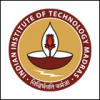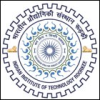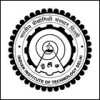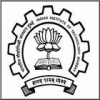How to become a Transportation Planner
Overview, Courses, Exam, Colleges, Pathways, Salary

Overview
Who is Transportation Planner ?
A Transportation Planner is a professional who specializes in designing and improving transportation systems to ensure efficient movement of people and goods. They work in both public and private sectors, collaborating with government agencies, urban planners, engineers, and community stakeholders.
Transportation Planners analyze data, conduct research, and assess current transportation infrastructure and patterns to develop effective strategies. They consider factors like population growth, traffic congestion, environmental impact, and accessibility to design sustainable and integrated transportation solutions.
Their responsibilities include developing transportation plans, designing road networks, proposing public transit systems, and implementing policies to promote alternative modes of transportation such as cycling and walking. They also assess the impact of transportation projects on land use and urban development.
Transportation Planners utilize various tools and technologies, including geographic information systems (GIS), traffic simulation models, and data analysis software. Effective communication and collaboration skills are essential for engaging with stakeholders, presenting proposals, and gaining support for transportation initiatives.
Typical day at work
What does Transportation Planner do?
- A transportation planner plays a critical role in developing and improving transportation systems to meet the needs of communities and promote sustainable mobility. Their responsibilities involve conducting research, analyzing data, and designing strategies to enhance transportation infrastructure and services.
- Transportation planners collect and evaluate data on traffic patterns, travel behavior, and existing infrastructure. They use this information to identify areas of congestion, safety concerns, and transportation deficiencies. By understanding these challenges, they can propose solutions and develop comprehensive transportation plans.
- These professionals collaborate with various stakeholders, including government agencies, urban planners, engineers, and community groups. They engage in public outreach and gather input to ensure that transportation plans align with the needs and preferences of the community.
- Transportation planners utilize advanced modeling and simulation tools to predict and analyze the impacts of proposed projects. This allows them to assess potential changes in traffic flow, travel times, and environmental effects. They also consider factors like accessibility, equity, and sustainability to create transportation systems that benefit all members of the community.
Abilities and Aptitude needed
What are the skills, abilities & aptitude needed to become Transportation Planner?
Certain skills, abilities, and aptitudes are essential to become a transportation planner. These include:
- Analytical Skills: Strong analytical skills are crucial for interpreting transportation data, conducting research, and identifying patterns and trends to inform decision-making.
- Problem-Solving Abilities: Transportation planners must possess excellent problem-solving abilities to address complex transportation challenges and devise innovative solutions to improve efficiency and mitigate congestion.
- Data Analysis: Proficiency in data analysis, including statistical software and geographic information systems (GIS), is important for processing and interpreting transportation-related data.
- Communication Skills: Effective communication skills are vital for collaborating with stakeholders, presenting findings and recommendations, and facilitating public engagement to gather input and address concerns.
- Technical Knowledge: A solid understanding of transportation planning principles, traffic engineering, land use, and urban design is necessary to develop comprehensive and sustainable transportation plans.
- Strategic Thinking: Transportation planners need to think strategically, considering long-term goals and the impact of decisions on various stakeholders and the community.
- Project Management: Strong project management skills enable transportation planners to coordinate and manage transportation projects, including timelines, budgets, and resources.
- Environmental Awareness: Understanding environmental issues and sustainable transportation practices helps planners incorporate eco-friendly and energy-efficient solutions into their plans.
- Collaboration and Teamwork: Working collaboratively with multidisciplinary teams and stakeholders is essential for successful transportation planning, requiring building consensus and working towards shared goals.
- Adaptability: Transportation planners must be adaptable and able to respond to changing circumstances and emerging technologies, ensuring their plans remain relevant and effective in evolving transportation landscapes.
Pathways
How to become an Transportation Planner?
Entrance Exam
Entrance Exam for Transportation Planner ?
Courses
Which course I can pursue?
Best Colleges
Which are the best colleges to attend to become an Transportation Planner?
Industries
Which Industries are open for Transportation Planner?
Transportation planners can find opportunities in various industries and sectors, including:
- Government Agencies: Local, state, and federal transportation departments and authorities employ transportation planners to develop and implement transportation policies and plans.
- Consulting Firms: Private consulting firms specialize in transportation planning services and often hire transportation planners to work on projects for clients in both the public and private sectors.
- Urban Planning and Development: Transportation planners play a key role in urban planning and development, collaborating with architects, engineers, and urban designers to integrate transportation systems into new or existing developments.
- Nonprofit Organizations: Nonprofit organizations focused on transportation advocacy, sustainable mobility, and community development may employ transportation planners to support their initiatives and programs.
- Transportation Service Providers: Public transit agencies, airport authorities, and other transportation service providers often employ transportation planners to optimize services, manage operations, and plan for future needs.
- Research and Academic Institutions: Universities, research institutions, and think tanks employ transportation planners to conduct research, contribute to academic programs, and develop innovative transportation solutions.
- Private Corporations: Large corporations, particularly those with significant transportation operations or supply chains, may employ transportation planners to optimize logistics and transportation strategies.
- Regional Planning Organizations: Metropolitan planning organizations and regional councils employ transportation planners to develop long-term transportation plans and coordinate regional transportation initiatives.
internship
Are there internships available for Transportation Planner?
Internships for transportation planners are commonly available in a range of organizations and sectors. Government transportation departments, urban planning agencies, consulting firms, research institutions, and non-profit organizations often offer internship programs for students or individuals seeking practical experience in transportation planning. These internships provide opportunities to apply knowledge and skills in real-world settings and gain hands-on experience in data analysis, transportation modelling, project management, and stakeholder engagement. They also offer networking opportunities and exposure to current trends and practices in the field. Internships can be instrumental in building a foundation for a career in transportation planning, allowing individuals to learn from professionals, develop practical skills, and make valuable connections in the industry.
Career outlook
What does the future look like for Transportation Planner?
The future for transportation planners appears promising as societies grapple with complex transportation challenges. With increasing urbanization, evolving technology, and a growing emphasis on sustainable mobility, the demand for transportation planners is expected to remain strong.
Transportation planners will play a vital role in designing and implementing innovative solutions to enhance transportation systems, reduce congestion, improve accessibility, and promote sustainable modes of travel. Integrating emerging technologies, such as autonomous vehicles and smart transportation systems, will require planners to adapt and incorporate these advancements into their planning processes.
Additionally, transportation planners will be at the forefront of addressing environmental concerns, promoting equity in transportation access, and developing resilient transportation networks to withstand future disruptions. The need for comprehensive, data-driven transportation planning will continue to be crucial in creating efficient, safe, and inclusive communities.







